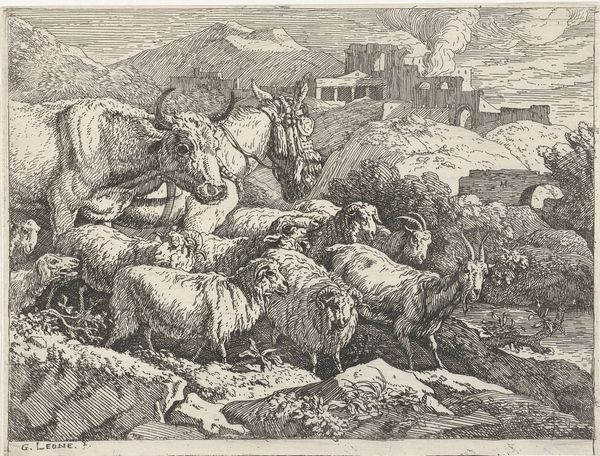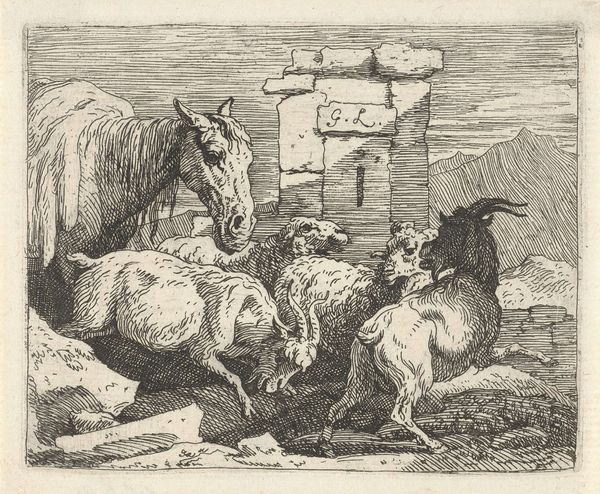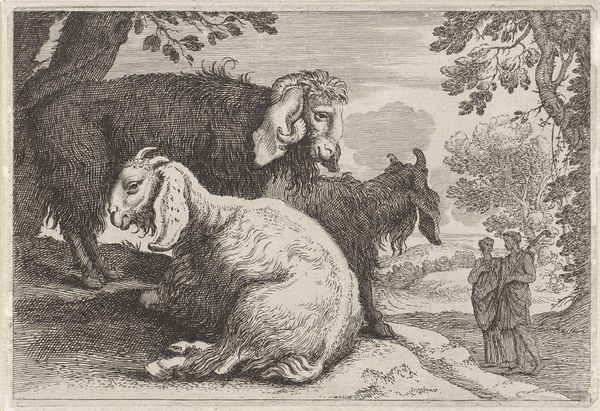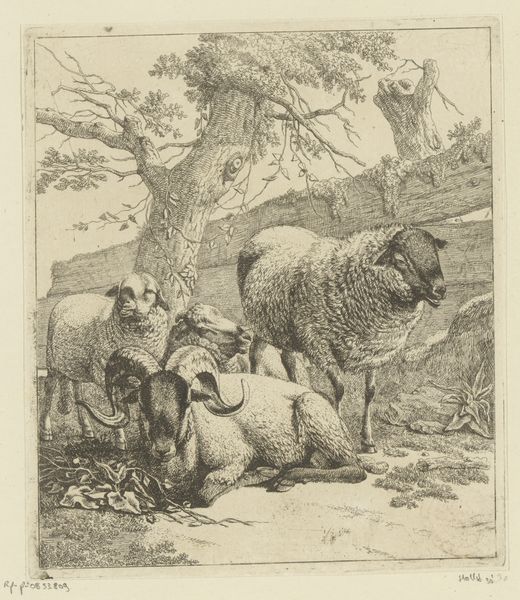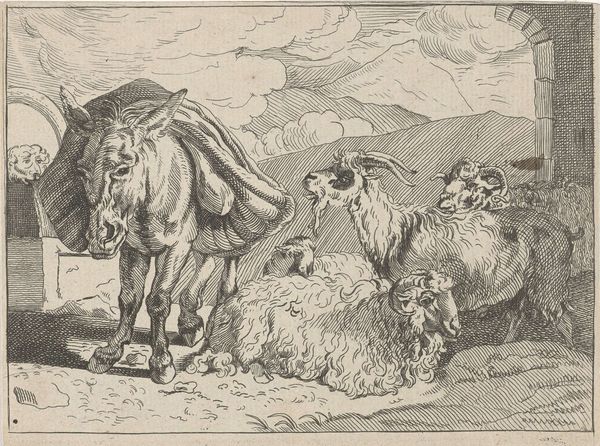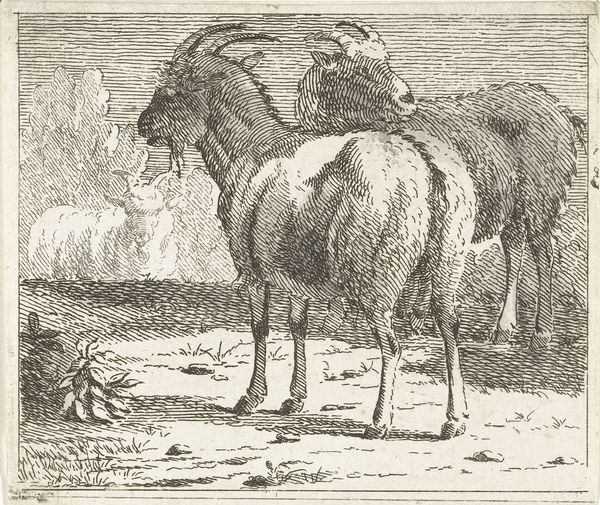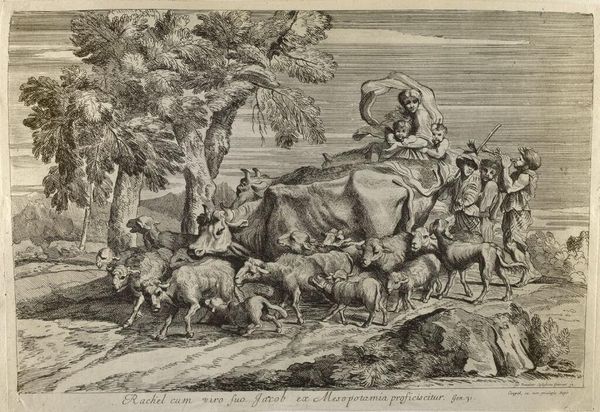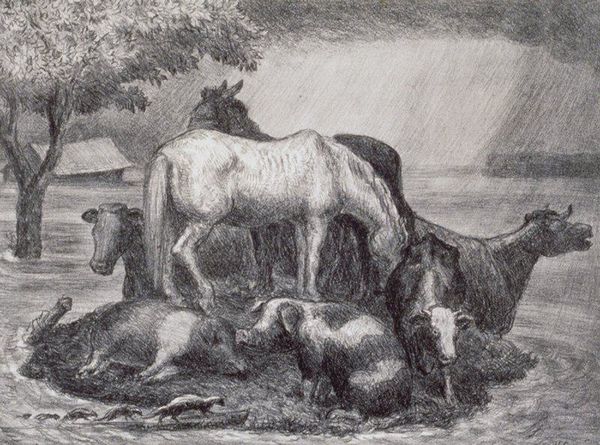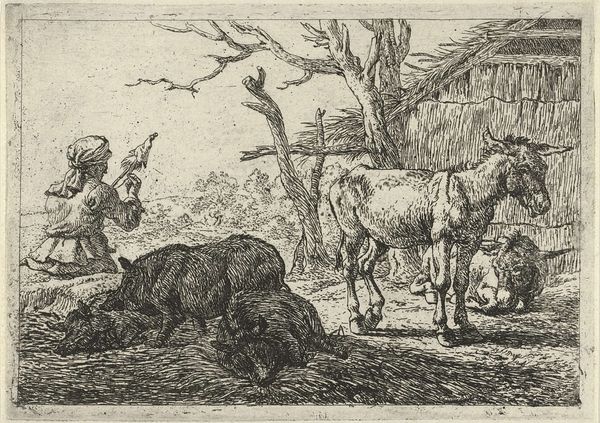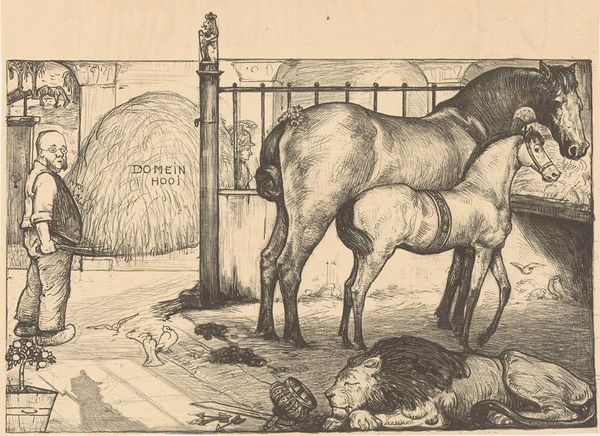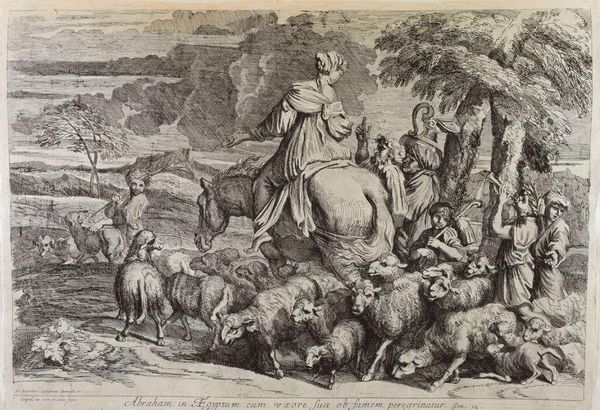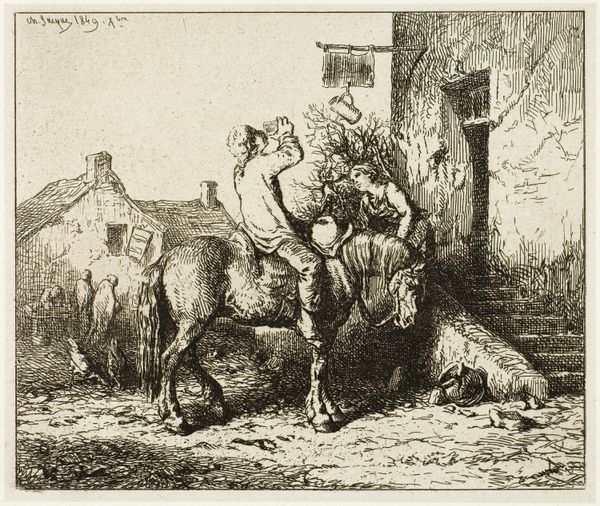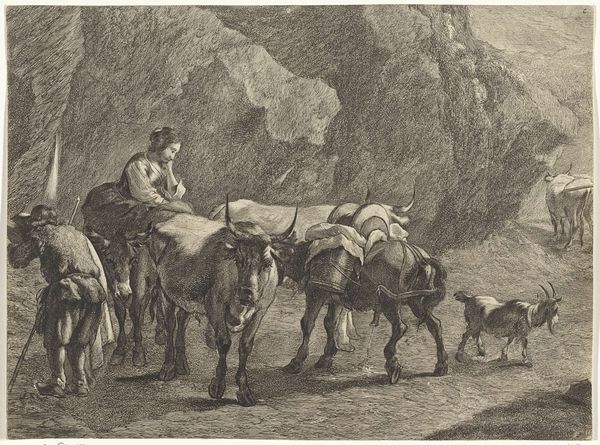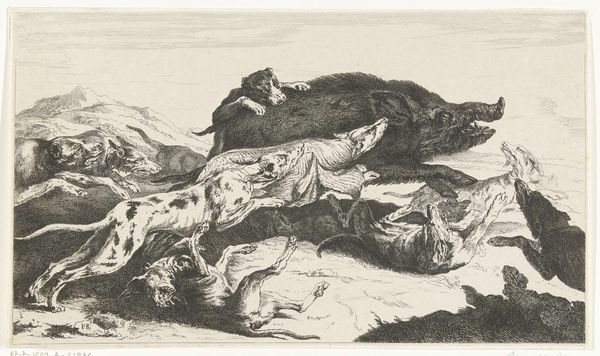
print, engraving
#
dutch-golden-age
# print
#
landscape
#
genre-painting
#
engraving
#
realism
Dimensions: height 168 mm, width 222 mm
Copyright: Rijks Museum: Open Domain
Govert van der Leeuw made this print, "Kudde dieren bij een drinkplaats", sometime in the 17th century, using etching. Etching allowed for detailed lines and textures. Look closely, and you will see how van der Leeuw created depth and volume through precise, controlled strokes. The density of the lines varies, building shadows and suggesting the texture of the animals' fleece, the roughness of the rocks, and the solidity of the architecture. Etching was closely tied to wider social issues and labor. It allowed for the relatively quick and easy reproduction of images, making art more accessible to a broader audience beyond the wealthy elite who could afford paintings. The process involved skilled labor, with the etcher needing to be adept at drawing, as well as technically proficient in the use of acids and printing presses. By emphasizing the relationship between artistic skill, material processes, and social context, we can appreciate the significance of prints like these, challenging traditional distinctions between fine art and craft.
Comments
No comments
Be the first to comment and join the conversation on the ultimate creative platform.
